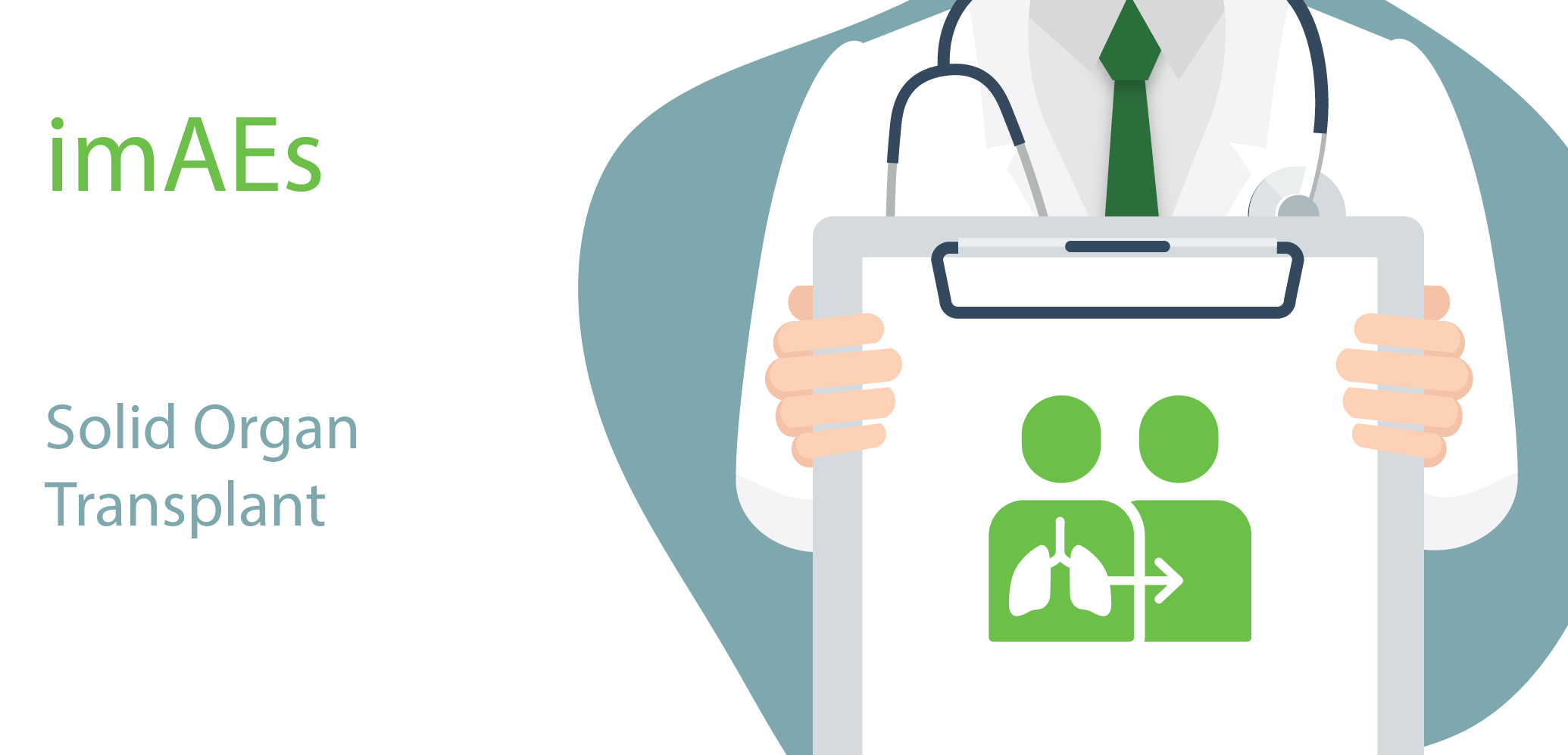Solid Organ Transplant /Graft-vs-Host Disease

Concerns regarding graft rejection in transplant recipients have led to the exclusion of this patient population from many clinical trials of immune checkpoint inhibitor (ICI) therapy. PD-1 inhibition appears to be more commonly associated with graft rejection, suggesting that this pathway may play a more critical role in allograft immune tolerance.
NCCN RECOMMENDATIONS
– Consideration of immune checkpoint inhibitor (ICI) therapy in organ transplant recipients is very complex and requires multidisciplinary involvement. Graft failure while on ICI immunotherapy has been reported, and transplant organ loss may be an outcome of treatment. Patients with solid organ transplantation who have a viable option for alternative therapy if graft rejection occurs (ie, kidney and dialysis) may be candidates for immunotherapy, particularly if there is no prior evidence of graft rejection and patients are on a stable maintenance immunosuppression regimen. The possible consequences of ICI therapy should be discussed with the patient and organ transplant team and there should be a plan in place to seamlessly manage the patient if graft loss occurs.
– Patients with prior allogeneic stem cell transplant may be candidates for immunotherapy, there is an increased risk of transplant-related complications, including potentially fatal graft-versus-host disease (GVHD). Careful discussion with the patient and stem cell transplant physicians should precede initiation of immunotherapy.
Reference:
- NCCN (National Comprehensive Cancer Network) V.1.2023. Accessed at: https://www.nccn.org/professionals/physician_gls/pdf/immunotherapy.pdf. Last accessed: 1-5-2023.
MSD Egypt, 67 – El Tesseen St., Address Building, Fifth Settlement, New Cairo.
In case you need any updates or you have an inquiry or need to report on an adverse reaction, you can contact:
Veeva Code: EG-KEY-00280
Expiration Date: 07/06/2024





